Reptile & Amphibian
News Blog
Keep up with news and features of interest to the reptile and amphibian community on the kingsnake.com blog. We cover breaking stories from the mainstream and scientific media, user-submitted photos and videos, and feature articles and photos by Jeff Barringer, Richard Bartlett, and other herpetologists and herpetoculturists.
Wednesday, July 31 2013
 The availability of captive-bred reptile and amphibian species to work with today is almost endless, with new color phases and morphs being discovered or created all the time.
Back when I was a hobbyist in the 80s and 90s, only a few species were being produced in captivity, primarily native colubrid snakes along with a small handful of exotics. The other species available, especially the exotic species, were almost invariably wild-caught imports, and even such animals as Honduran milk snakes, common in the captive-bred community today, were only available as parasite-infested wild-caught specimens whose survival was often questionable. Sports, or morphs, were virtually unknown, albinos truly rare, piebalds a holy grail.
With all the choices available today, just how do you pick which reptile or amphibian species to work with?
No matter what your interest is, there is something available for you, and that's the first place to start: your interests.
Certainly there are other factors involved, not the least of which are space, cost, legality, etc., that all must be considered, but in the end, if you're not interested in the species or morph, why work with it? Whether you want to work with Pacman frogs because you like Pacman frogs, or you want to chase the rainbow by breeding the latest and greatest ball python or hognose morphs, if you're not working with something you're interested in, you might as well be delivering pizzas instead.
My interests have been, and always will be, kingsnakes and milk snakes, and because that also happens to be the "branding" chosen for this web site long long ago, it's a natural that I've started by breeding kingsnakes and milk snakes. With relatively easy care requirements, and a variety of species, sub-species, and color morphs to work with, they make excellent examples of "first time breeder" animals, one for which a ready market exists.
My business plan calls for acquiring several hundred kingsnake and milk snake hatchlings over the next 24 months, along with a few select adults, raising them up, breeding them, and then selling their offspring primarily into the wholesale market. As such it will be a full three years before I can expect to see any offspring in salable quantities, or the first returns on the investment, and as such will have to make very careful and wise decisions and good deals.
I plan to work primarily with less expensive snakes to start, California kingsnakes, eastern kingsnakes, Pueblan milk snakes, and a few others, avoiding the more problematic feeders or more collectible species such as graybanded and moutain kingsnakes, as well as avoiding the "man-made" morphs and sports such as albinos. Later as the operation expands I'll look at adding more variety, but for now I'm going to focus on basics.
If you have these on your table at a show this year, or have them posted to our classifieds here, don't be surprised to find me checking out your stock.
If you started a commercial reptile breeding business, what species would you choose, and why?
Monday, July 29 2013
 It's been a long while since I've kept a breeding colony of anything, so it was a surprise even to myself when I heard the words "I'm starting a commercial breeding colony of kingsnakes this year" coming from my mouth earlier this spring. Some of my friends thought I should have my head examined.
I had long ago swore off "keeping" as an addiction that in my position could easily, and quickly, spiral out of control, yet here I was making plans for exactly that, except on a larger scale than I had ever attempted as a hobbyist some 20-odd years ago.
At least this time I'd be going at it with a plan, of sorts, and a direction, rather than just buying or catching the things I thought were "cool." And now there was an industry to support my endeavor, rather than a scattered grouping of friends and a handful of reptile events.
Yeah, a lot has changed since I was a hobbyist keeper the first time. There are many more captive-bred species available, the Internet is now a vast communication network that everyone uses rather than just an odd few techno geeks, and many of the technologies and gear that hobbyists had to develop and build by hand are now readily available as quality manufactured items.
And reptile breeders are much more professional and businesslike in their approach than 20 years ago, as well. On top of that, there is much more knowledge and information available than ever before. And I have had 20+ years to learn from my, and others', mistakes.
Putting this all together should be easy, right? I'll be documenting it here, so stay tuned and find out!
Friday, May 17 2013
 The Pet Industry Joint Advisory Council (PIJAC) has announced the launch of their new, advocacy-based website. The interactive website reflects the organization's mission to provide members and concerned pet owners with a voice in legislative issues affecting pets and pet ownership.
"Our new website is a strong advocacy tool, highlighting issues requiring immediate industry action," said Mike Canning, PIJAC's President and CEO. "Providing quick and easy access to essential information, the new PIJAC website ensures that the industry has a say in its future."
According to Canning, the new design raises awareness and fosters engagement on issues, legislation, and PIJAC activities that affect the industry. New website features include:
- Highlighted action items so all pet professionals can have their voices heard at the legislative level
- A user-friendly legislative map, making it easy to find important legislation in every state
- Enhanced search features making it easy to find the issues that matter most to you and your business
- The PIJAC blog , fostering discussion on issues of importance to the industry
- The new PIJAC program, The Pet Effect, highlighting socially-responsible pet companies that go above and beyond by doing good things for pets in need
- An integrated conference site for the Pet Industry's Top2Top Conference
"Designed by the top advocacy website designer in Washington, D.C., the new PIJAC website will engage our members and the industry to proactively address the issues that affect their bottom line with legislators around the country," Canning said.
To check out the new PIJAC web site please go to, www.pijac.org, and stop by regularly for pet and reptile and amphibian regulatory updates.
Friday, March 29 2013

It's spring! Although many in North America knee deep in snow might argue the point.
Nonetheless, field herpers in the U.S. are already gearing up and making plans for local hunts and the "big trip" to Sanderson Texas for it's second annual "Snake Days" field event. With reptile and amphibian symposiums during the day and field trips out into the desert at night Snake Days is fast becoming the "go to" event for field herpers, as well as a nationally known gathering of the "old guard", renowned field herpers of the 60's 70's 80's and 90's that spent countless nights chasing the herpetofauna of the Trans-Pecos.
Held in the heart of Gray-banded Kingsnake country. the festival will be June 7, 8, 9 in the tiny desert town of Sanderson, halfway between Del Rio and Alpine Texas on US Highway 90. Hotel accommodations in Sanderson are available but limited and filling up fast. kingsnake.com will be there with the Zombie snake hunting truck, handing out free bumper stickers during the day and prowling the desert with a truck load of herpers at night. For more information on Snake Days or for hotel information, please visit the Snake Days web site at http://snakedays.com
Monday, March 18 2013
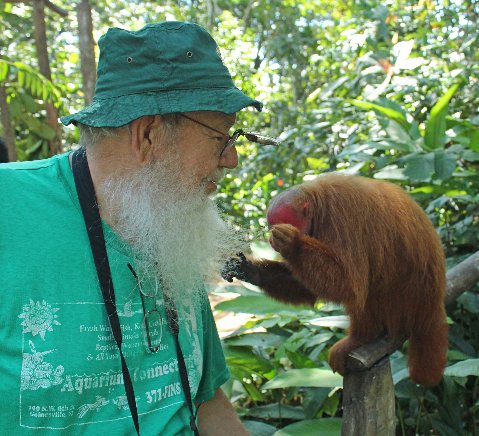 In addition to bringing you herp news, photos, and site updates, the kingsnake.com blog is launching a featured contributors program, bringing the biggest names in reptiles and amphibians to share their decades of experience and knowledge with our site visitors.
Leading the launch this week is author, photographer, and columnist Richard Bartlett, one of the most prolific writers on herpetological subjects in the 20th century. With hundreds of books and articles to their credit, Richard and his wife, Pat, have spent over four decades documenting reptiles both in the field and in captivity.
Check out the kingsnake.com Richard Bartlett bookstore!
Coming soon: Featured contributors Phil Goss of USARK, Slayer's Kerry King, Dr. Dante Fenolio of the San Antonio Zoo, Carole Allen of the Sea Turtle Restoration Project and more!
Continue reading "Welcome to kingsnake.com's "featured contibutor" page!"
Friday, March 15 2013
 kingsnake.com has remodeled our stores to upgrade the interface and refresh the product selections. We've also added several new stores, greatly expanding our product categories and choices.
All of kingsnake's stores are partnerships with some of the biggest names in online retailing, including Amazon.com, EBay and Cafe Press, and include thousands of products, many eligible for Amazon's Prime shipping service. And all of the products in our stores are hand-selected by kingsnake.com's editors. Check out the complete list of kingsnake.com stores below:
New Stores- Shipping Supplies Store - Insulated boxes, heat packs, deli cups, and more. - Click here to see more.
- Reptile & Amphibian Supplies Store - ZooMed, ExoTerra, Repashy Superfoods, live crickets, and other supplies. - Click here to see more.
- Trade Show Supplies Store - Custom banners, roll-up displays, tabletop displays -- make your booth look professional. - Click here to see more.
- Camera Shop - Nikon, Canon, Sony, Fuji, JVC, cameras, and audio and video gear. - Click here to see more.
- Offroad Outfitter Shop - Winches, recovery gear, snorkels, stereos -- build your rig up for the field. Click here to see more.
- Reptile & Amphibian Gift Shop - Art, jewlery, posters, t-shirts, hats, and other reptile and amphibian gifts. - Click here to see more.
- kingsnake merch store - kingsnake.com branded t-shirts, hats, coffee mugs, teddy bears and other cool gear. - Click here to see more.
Updated Stores - Book, DVD, & Media Store - field guides, care guides, biographies, calendars, DVDS, and other reptile media. - Click here to see more.
- Field Outfitter Shop - Snake hooks, snake boots, gaiters, bags, first aid kits and other gear to get you to and from the field safely. - Click here to see more.
- Reptile & Amphibian Supplies Auctions - Bid on ZooMed and ExoTerra products, and other reptile supplies on Ebay! - Click here to see more.
You can reach all the shops at kingsnake.com by going to http://kingsnake.com/stores . We will be adding more categories and products all Spring, so make sure to check back often!
Wednesday, March 13 2013

kingsnake.com will be handing out our all new "Zombie" bumper stickers at this weekend's NARBC Expo in Tinley Park, just outside Chicago, to celebrate the launch of our new "merch booth" on Cafe Press.
kingsnake.com's new designs, and old designs as well, are now available on t-shirts, tank tops, coffee mugs, and more all through the internet's most popular on-demand printer, CafePress.
To check out kingsnake.com's new "Zombie" shirts and more, visit the kingsnake store at http://www.kingsnake.com/stores/kingsnakestore/!
kingsnake.com won't be the only ones drawing a crowd at this weekend's NARBC Expo, with Slayer guitarist Kerry King's appearance confirmed. Just back from a tour in Australia, he's bringing a load of carpet pythons and T-shirts with him from California. Anyone who knows Kerry know he loves to talk snakes, and he'll be in his Psychotic Exotics booth both days showing off his reptiles, taking pictures with fans, and signing autographs.
Kerry won't be the only one in Tinley signing autographs, either. Long-time herper and Auction Hunters TV personality Ton Jones will also signing autographs, taking pictures, and hanging out with fans over at the Timberline booth. Stop by and tell Ton hello!
NARBC in Tinley is always an interesting show, with lots of surprises. We have a few surprises to announce before the show as wellg so watch this space!
For more info on the NARBC Tinley Park Reptile and Amphibian Expo, including times, directions, and accomodations, check out the NARBC web site at http://NARBC.COM.
Tuesday, March 12 2013
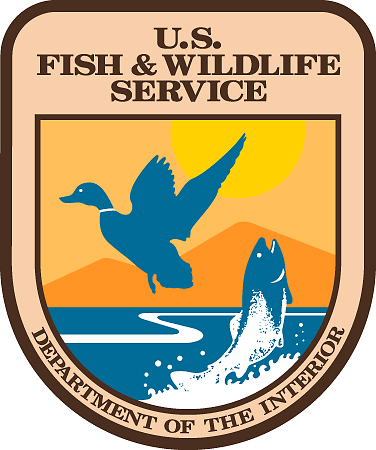 The budget sequester has forced the U.S. Fish and Wildlife Service (USFWS) to slash port inspections at night and on the weekends, potentially leaving thousands of fish and reptiles stuck in an import limbo that could devastate two industries just getting back on their feet after the economic downturn.
In a press release, the USFWS said the service "has imposed a hiring freeze (meaning that wildlife inspector vacancies will not be filled) and has suspended all overtime activities (including those at ports of entry."
Marshall Meyers of the Pet Industry Joint Advisory Council (PIJAC) said, "The USFWS advised importers/exporters of live wildlife that the Service will no longer inspect shipments after hours on weekdays (normally after 4:30 pm), Saturday/Sunday or federal holidays. The notice states that this will remain in effect through fiscal year 2013, so even if budget issues are resolved, USFWS says the clearance embargo will remain in place."
As many, if not most, international flights arrive after hours or on weekends, importers serving the pet industry are most likely going to be crippled if they cannot find alternative air transportation, which will itself undoubtedly result in longer, less direct, flights. Several importers have advised PIJAC that the USFWS decision is likely to result in their suspending operations or simply going out of business.
Members of both the USFWS and PIJAC are currently in Thailand attending the 26th meeting of the CITES Animals Committee, which is addressing a number of agenda items including sharks, snakes, sturgeons, corals, and listing criteria for commercially exploited aquatic species. Hopefully PIJAC and USFWS will have a chance to discuss options to avert this crisis.
More details as they come in.
Friday, February 8 2013
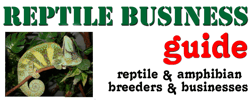 kingsnake.com has completely rebuilt its reptile breeders and business directory, launching it not only on the main site, but also as a standalone website called ReptileBusinessGuide.com.
Businesses listed in kingsnake.com's current business directory system will be listed there as well as being listed on the new ReptileBusinessGuide.com site for the same flat annual fee, but with a new platform that will allow us to expand the feature sets available to businesses and hobbyists. Currently, the system allows a user to have not only a link to their website, but a map link if they have a retail location, links to a their Facebook, Twitter, and YouTube pages, as well as the ability to post a description and searchable keywords.
Both ReptileBusinessGuide.com and kingsnake.com's business directories are geographically oriented, with a click map interface, a zip/postal code search, as well as a keyword search. State-by-state listings also include links to upcoming local events, and localized classified ads.
ReptileBusinessGuide.com also uses kingsnake.com's standard banner sizes and rotations, including the brand new, low-cost, high visibility " Banner Pool" system.
As part of our "Sweet Sixteen" celebration event, listings are on sale through Saturday, Feb. 9, at midnight Central Time for only $50 each, a $50 savings over their regular price. What's more, now that it gets your event listed on two websites for the price of one, it's twice the deal.
To order a reptile and amphibian business directory listing for only $50 a year, click here!
Wednesday, February 6 2013
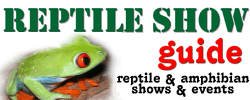 Is there a reptile show coming to town, but you don't know when or where or even how to get there? That's why we've launched ReptileShowGuide.com!
kingsnake.com has completely rebuilt its reptile events system, launching it both on the main site and as a standalone site. Reptile shows, meetings, and other events listed in kingsnake.com's current event listing system will be listed there, as well as being listed on the new ReptileShowGuide.com site with the same flat per-show fee for commercial events -- and still free for non-profit events!
The new events platform allows us to expand the feature sets available to show promoters who list with the service. Currently, the system allows a user to have not only a link to an events web site, but a map link to the event site, and links to their Facebook, Twitter, and YouTube pages. We plan on adding more features, as well as making listing user-manageable shortly.
Both ReptileShowGuide.com and kingsnake.com's revised events systems are geographically oriented, with a click map interface and a zip/postal code search. State-by-state listings also include links to local reptile businesses, and localized classified ads.
ReptileShowGuide.com also uses kingsnake.com's standard banner sizes and rotations, including the brand new, low-cost, high visibility " Banner Pool" system.
As part of our "Sweet Sixteen" celebration event, listings are on sale through Saturday, Feb. 9, at midnight Central Time for only $50 each, a $50 savings over their regular price. What's more, now that it gets your event listed on two websites for the price of one, it's twice the deal.
To order a reptile and amphibian event listing for only $50, click here!
Tuesday, February 5 2013
 This week, kingsnake.com is celebrating its sixteenth birthday, so we're rolling back the clock to 1997 and having a sale!
As part of our birthday festivities, we've put kingsnake.com business directory listings on sale for an incredible one-time only $50 a year -- that's $100 off our normal price! We've also put kingsnake.com's event listings on sale for only $50 each, which is $50 off our normal price!
 Along with this week's launch of the low-cost, high-visibilty banner pool program, this is a great way for a reptile show or breeder to get a year's worth of listings and a full display ad package for a fraction of our normal costs. (Some of the banner pool locations are limited by availability, so act now before the biggest and best ads sell out.)
To get in on these 16th birthday specials, go to http://kingsnake.com/sweetsixteen.
We'll also be celebrating our 16th birthday all year at a variety of reptile and amphibian events, including this month's NARBC expo in Arlington Texas. Please stop by our booth to check out the "ZombieHunter" snake hunting machine, pick up a free kingsnake.com window sticker or bumper sticker, and let us know how long you have been reading kingsnake.com!
I want to thank everyone who has done so much over the years to make kingsnake.com most popular reptile community on the Internet. I'm looking forward to 2013, and to seeing everyone on the road - Jeff Barringer
Click below to see images of kingsnake.com throughout the years...
Continue reading "kingsnake.com is Sweet Sixteen... time for a party, and a sale!"
Friday, February 1 2013
 Ever wanted to run a banner on kingsnake.com, but were stopped by the cost? Help is here!
Buying display based advertising on the Internet industry per-view (known as "CPM") basis is cost-prohibitive for most small reptile and amphibian businesses and hobbyists. You buy $100 worth of views, and they run out before you even see your own banner. To address both of these issues and create ultra-low-cost display advertising opportunities, kingsnake.com has developed a new "Banner Pool" program where, for one very low price, you can get big name display advertising presence for a fraction of what traditional banners cost.
Here is how it works: kingsnake.com has categorized a number of its existing banner locations, and created new ones, as being part of a "banner pool." Anyone wishing to add their banner to the pool will pay a low fixed fee, and their banner will be displayed equally along with other members of the banner pool. The number of views your banner receives will be based on the day's visitor traffic divided by the number of banners in the pool.
Some special things about the pool banners: Unlike in our standard banner locations, we will not be using the pool banner locations for Google or Amazon advertising. Nor will we use them for kingsnake.com's own "house" advertising.
That means you won't be competing with third party or in-house ads. Only advertisers who have paid to be in the pool will be in the pool. * Additionally, membership in each pool will be limited so that each pool member will get a fair and appropriate amount of advertising for their purchase, with no less than 1000 views per day being the cutoff. Most will receive far in excess of that number.
How much does it cost to jump into the banner pool? There are a number of options based on display ad size and location, the most expensive being the large 300 x25 rectangle that appears on our index and other pages (the second display ad in the right column) for only $100.00 per year -- 27 cents a day!
Other options include a full size (468x60) pool banner for $50 a year that will appear primarily in the footer as well as in classified ads and forum posts, and a half banner for $30 (234 x 60) that currently only appears in the footer but may see other locations added.
Finally, we're offering a quarter-sized (120 x 60) banner that appears in the middle of most of our indexes, as well as the footer of every page on kingsnake.com. This is our best value, delivering hundreds of thousands of views daily. The cost for a banner in this pool is only $25 a year!
For more information on how to add your banner to the pool, or to purchase your banner pool slot, please go to http://www.kingsnake.com/services/bannerpool.html. Space in the pool is limited and selling fast, so grab a towel and head to the banner pool today!
(kingsnake.com has donated pool banners to the USARK, PIJAC, and NRAAC organizations, and banners for these organizations appear in some, though not all, pools.)
Monday, January 21 2013
 The United States Association of Reptile Keepers has announced they have hired long time herper Phil Goss as the new President to lead the organization. From the press release...
The board of directors of USARK has unanimously hired Mr. Phil Goss as their new president. Phil is a longtime herper, having been active in the hobby and industry for over 15 years. Phil currently owns Goss Reptiles (www.gossreptiles.com) and has worked in all aspects of the industry including pet shops, large scale breeder, pet distributors and industry manufacturer. Phil's love for all animals (but mostly reptiles) and his industry knowledge make him a perfect candidate for this position. Phil is a graduate from Indiana University with a degree in Education. USARK welcomes Phil Goss to the organization and looks forward to working with him as we move forward in 2013, protecting your rights to keep and breed reptiles.
Monday, January 14 2013
Check out this Atlantic county N.J. Coastal Plain milk snake female photo uploaded by kingsnake.com user CarlBartlett. 
Upload your own reptile & amphibian photos photos at gallery.kingsnake.com and you could see them featured here!
Sunday, January 13 2013
Check out this video "Looking at you through the glass" submitted by kingsnake.com user spotsowner.
Submit your own reptile & amphibian videos at http://www.kingsnake.com/video/ and you could see them featured here or check out all the videos submitted by other users!
Check out this 2010 T pos C.A. Boa Female gallery photo uploaded by kingsnake.com user biophiliacs. 
Upload your own reptile & amphibian photos photos at gallery.kingsnake.com and you could see them featured here!
Saturday, January 12 2013

Check out this Green Tree Python gallery photo uploaded by kingsnake.com user Sharkman20.
Upload your own reptile & amphibian photos photos at gallery.kingsnake.com and you could see them featured here!
Friday, January 11 2013

Check out this Ambilobe Panther Chameleon gallery photo uploaded by kingsnake.com user vinniem1210.
Upload your own reptile & amphibian photos photos at gallery.kingsnake.com and you could see them featured here!
Thursday, January 10 2013

Check out this Ancon Hill Auratus gallery photo uploaded by kingsnake.com user leif .
Upload your own reptile & amphibian photos photos at gallery.kingsnake.com and you could see them featured here!
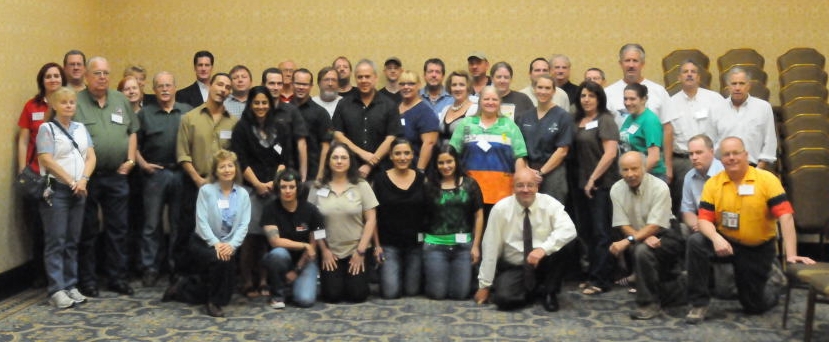 The reptile world has a wide variety of organizations. How do they all fit together?
This is how I see it:
The Pet Industry Advisory Council (PIJAC) is the largest and oldest pet business and pet-owner lobbying organization in the United States. I don't agree with all their policies or politics, but I do support their positions on reptile and amphibian issues.
This is an organization I've worked with for over ten years in an advisory role. In terms of beltway politics, they are the organization that the federal government and NGOs regularly turn to for pet- and herp-related issues, including pending regulation and legislation. They have had input on every major herp regulation implemented at the federal level in the last 40 years.
With management staffed primarily by attorneys, backed by the major pet industry players, and with a newly expanded reptile and amphibian advisory panel headed by Scott Hardin, formerly of the Florida Fish and Wildlife Commission, PIJAC is the go-to organization for herp issues in D.C. While they rarely receive press, and rarely claim victories publicly, they are the most effective organization at the federal level, and that should remain their primary focus.
What they have always lacked has been an effective mechanism to reach small businesses and individual pet owners, as well as an effective mechanism to deal with state issues. Additionally, with a focus primarily on the pet trade, they are less equipped to deal with aspects of our hobby such as venomous keeping.
The United States Association of Reptile Keepers (USARK) is the most effective organization we have for reaching the grassroots. It also can work in issue and advocacy areas that PIJAC doesn't or can't, particularly with small business and pet owners. It should work hand in hand with PIJAC to insure our community is represented both nationally and a state level. In turn, PIJAC should work with USARK to utilize the input from the USARK member base in the most effective way, providing support on state issues when requested, and requesting support from the USARK membership on national issues as needed. USARK has the best tools and structure to assist states directly as needed and requested by state-based organizations and members.
The National Reptile and Amphibian Advisory Council (NRAAC) provides educational support, and draws different organizations and agencies concerned with reptiles, amphibians, and the law together to discuss -- in a non-political and non-confrontational manner -- the laws and regulations effecting reptiles, amphibians, and people at an annual symposium.
NRAAC should continue on with its annual conference, taking it on the road to a new location every year, and should continue with projects such as the national reptile and amphibian law database, and other informational and educational projects that benefit the community as whole.
As a non-member, all-volunteer organization, NRAAC needs to draw on the resources of PIJAC and USARK and its membership for support, financial and otherwise. NRAAC should invite federal and agencies as well as NGOs to sit on its various steering committees to help determine the direction of the organization and its symposium, and will be doing so in 2013. NRAAC is not a lobbying organization.
Herpetological societies, clubs, and organizations, such as the East Texas Herp Society and Chicago Herp Society, draw herp people together from many disciplines, providing a social network, acting as trip-wire on state and local issues, and providing a strong network of support locally.
As a community, we need more and stronger herp societies to help promote education and rescue efforts, provide information, and give and receive input on regulatory efforts on state, local, and national level. Herp societies should be the backbone of dealing with most state regulatory efforts.
In cases where the societies are unable to step forward or do not exist, USARK and PIJAC should put the systems in place to provide support to their members in those states. USARK and PIJAC should both work to expand the loose herp society network that is already in place, even though herp societies are not, and should never be, lobbying organizations.
The Association of Reptilian and Amphibian Veterinarians (ARAV) also has a significant role to play in the community. Without their input, many of the things the other organizations are trying to accomplish would simply be impossible. They provide much of the research that makes the other organizations effective, help train the herp veterinarians of tomorrow, care for our pets, and help to recognize the rise of pathogens that may harm our animals and our community.
The ( Association of Zoos and Aquariums) (AZA) also plays an important, and often overlooked, role in our community, with many zoo professionals having started as hobbyists. Zoological parks and aquariums play perhaps the most important part, teaching youth the value of animals, habitats, and ecology and giving many children their first hands-on experience with reptiles and amphibians.
These facilities also act in many cases as "arks" for critically endangered species, providing controlled captive breeding programs that allow some species to survive in captivity when their wild compatriots have vanished, and allowing for re-introduction when appropriate. Also important is the research they do on those same species, and on many less-endangered native species.
Partners in Amphibian and Reptile Conservation (PARC) plays the important role of connecting all these disparate organizations upstream to federal and state agencies, as well as conservation-focused NGOs like as the Sierra Club and World Wildlife Fund to promote conservation of reptiles and amphibians nationwide and worldwide.
Reptile and amphibian rescues, such as Small Scale Rescue and VA Reptile Rescue are the final link in the organizational chain, providing important support to both wild and captive reptiles, as well as injured, abandoned, or confiscated animals. Usually overlooked and overworked -- and always underfunded -- these organizations need to be embraced by both USARK and PIJAC, and given assistance in formalizing their structures as needed and requested. The network of rescues needs to be strengthened and enlarged, with more support provided by the organizations and community.
What role do you see for organizations in our community? Are there any that I have missed?
Monday, January 7 2013
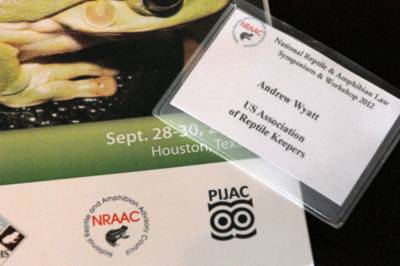 In the business world, CEOs and presidents are fired, resign, or move on to other things every day. Sometimes they resign to move on to bigger and better things. Sometimes they resign because of a difference of opinion with their board. Sometimes they resign in lieu of being terminated, sometimes because the board has lost faith, sometimes because of gross incompetence or dishonesty, and sometimes because criminal activity has been uncovered. It's tough to read between the lines in press releases, but in the business world if an executive move is lateral or downward, you can usually bet the resignation wasn't by choice.
Sometimes these management changes signal a change for the worse in an organization, and sometimes it's a change for the better. Rarely does it signal impending doom -- it's far more likely it simply signals a change in direction. In the case at hand, the changes are for the good, and signal a change in direction: the right direction.
I'm talking about the recent resignation of USARK's Andrew Wyatt. Since USARK's inception, I have withheld support of the organization out of concern over the individual at its helm. Some believed it was, and Wyatt himself always passed it off as, personal animosity, but that's not the case.
Having already started and been involved with a similar lobbying organization in the years from 1997-2002, I was familiar with the problems and obstacles such an organization faced, and therefore did my best to steer everyone toward using assets already in place rather than creating the expense, burden, commitment, and risk a new organization would entail.
I also knew that, once started, it would forever need to be fed, in ever-growing amounts of money. I knew such an organization would need to be geared up to operate for 20+ years, and raise millions of dollars. And I knew that the easiest, fastest way to raise early money was to start yelling "fire" all the time -- a battle cry that would inevitably backfire and be destructive to our community and our hobby.
Which is exactly what we saw happen with the constant drumbeat of disaster Wyatt put forth from USARK during his tenure. And just as I feared, it frightened away consumers and businesses, putting downward pressure on an industry and hobby already staggering under the weight of a bad economy.
I also kept my distance from Wyatt's organization because it didn't pass my due diligence.
Websters defines "due diligence" two ways: First, as the care that a reasonable person exercises to avoid harm to other persons or their property, and second, as the research and analysis of a company or organization done in preparation for a business transaction.
As part of that process, I looked at everything I could find pertaining to the organization and the individual running it. Neither the strategy being employed, nor the lack of transparency, nor the possibility of harm, gave me confidence in either.
I was also concerned about the structure of USARK, which left all the power concentrated in the hands of one individual, the founder, with a board of directors limited in its ability to assert control should he choose to take the organization down a wrong path.
Even more troubling to me, that individual had no legal background, no lobbying background, and no corporate background. In fact, as far as I could tell, his knowledge of and background in the herp community and industry was limited. I knew that there would be hundreds of thousand of dollars required to do what he was proposing, and at risk would be an industry with thousands of businesses and individuals involved, worth millions. Despite this, it seemed that something as basic as a relevant background investigation had never even been run.
Finally, I knew that as long as Wyatt was in charge, it would be his organization, not the board's, and certainly not the "Reptile Nation's."
So I withheld kingsnake.com's support, and my support, until Wyatt and USARK could prove themselves.
In the following years, Wyatt, did nothing to prove me wrong. In fact, it almost seemed that he did everything to prove me correct, repeatedly. Evidence and allegations of bad management were rife, including loose controls over cash flow and expenses, excessive travel for limited gain, lack of transparency as to how funds were spent, poor messaging and messaging protocols, and USARK officers carrying on inappropriate personal relationships with USARK volunteers at industry trade show events.
As USARK gained momentum and voice, Andrews' "house on fire" tactics took a greater and greater toll on hobbyists and businesses, turning what had been a rapidly-growing industry into one that slowed, then stopped, then began to reverse course.
I repeatedly raised numerous questions and concerns to Andrew, to the USARK board members, and to the community. I pointed out that the path we were headed down was damaging us as an industry and community. Wyatt continued to paint this as a personal issue, and publicly labeled me as "divisive" every chance he got.
Perhaps for that reason, the USARK board disregarded my questions and warnings, and I never got the information and answers I was looking for. My opposition to USARK's leadership, policies, and direction became well known not only in the back channels where I tried to keep them, but publicly as well -- so well-known, in fact, it negatively impacted my business, my friendships, and my personal relationships in the community.
In the spring of 2012, feeling almost desperate about the direction our hobby was moving in and hoping to rebuild some of the bridges Wyatt was burning, I helped start a reptile law education organization dedicated to putting on a reptile law symposium, the re-purposed National Reptile and Amphibian Advisory Council (NRAAC).
NRAAC was indirectly threatened with, and ultimately suffered, a "blackout" by industry leaders and media connected to the USARK organization. Others in the community were pressured by USARK, both directly and indirectly, not to participate in the organization or the symposium. Virtually the only press we got was on kingsnake.com. I was even told, by one long-time customer, that he could not accept my event's advertising, free or paid, for fear of upsetting USARK.
The blackout dramatically impacted our ability to market the event and directly limited the participation by the community in the very first national reptile law symposium. Were it not for the federal and state agencies, as well as PIJAC, the ARAV, and especially the ETHS, the event would have foundered. Thanks to them, it was a huge success.
I'd like to address another issue that demonstrates how Wyatt put his own personal agenda ahead of the well-being of our hobby. Wyatt and another USARK officer, Ericka Walsh, claimed that they were unaware of the Symposium until it was too late to attend, and that they were not invited to participate. This is demonstrably untrue. We invited USARK directly via email from our site coordinator. Despite the lack of response to our invitation, we even had a badge prepared and waiting for Wyatt at the event, should he have decided to appear at the last moment.
But Wyatt didn't appear. Nor did Walsh.
Neither did Dave and Tracy Barker, who were also invited to represent either USARK or their own business, or both, despite Dave being invited by me personally during the Snake Days event in Sanderson four months previously, and receiving multiple email invites. Wyatt, Walsh, the Barkers -- not one of them could see the need to sit down and talk with the specific federal agencies, and the specific individuals within those agencies, tasked with deciding the fate of Boa Constrictors and Reticulated Pythons.
Fortunately, less than a week before the event, Gary and Shane Bagnall made arrangements to participate, guaranteeing USARK at least some representation.
So here we are today.
Andrew has "resigned" under what most people see as the proverbial "mysterious circumstances." He is predictably painting himself as the martyr in the situation, and is trying to divide the community by launching an organization directly competing with USARK. He is using what is essentially a generic cover story to explain his exit, and to justify the need for the existence of this new organization, to launch it, and to once again ask you for your money. And he is hiding the facts behind a non-disclosure agreement that masks the real circumstances of his exit. Talk about being "divisive."
Maybe you're considering supporting Wyatt's new organization. Maybe you believe his claims that only he, not USARK and its board, nor anyone else in the herp community, really cares about your interests. Maybe you just don't want to make him into an enemy.
Fine. But before you support any organization headed by Andrew Wyatt, you should ask him the questions I'd like to have asked him over the last three years (and tried to). Under oath.
Here are five questions for Andrew Wyatt, below the jump -- add yours in the comments!
Continue reading "The exit of Andrew Wyatt"
Sunday, January 6 2013
Check out this 2010 Two-Headed Bearded Dragon video submitted by kingsnake.com user RoachMei.
Submit your own reptile & amphibian videos at http://www.kingsnake.com/video/ and you could see them featured here or check out all the videos submitted by other users!
Friday, January 4 2013
 As expected and predicted, HR 511 expired when the House adjourned, once more "saving" boas and pythons from the clutches of federal legislators just in the nick of time. Before we go around patting ourselves on the back, shooting off fireworks, and waving victory flags, consider this.
Logistically, HR 511 and all its predecessors never had a chance of passing, regardless of what either side said or how either side spun it.
Without question, based on the laws of statistics alone, the same or a similar bill will reappear again in 2013 or 2014 under a new HB or SB number, and it, too, will die a long, slow, tortuous death -- but not until after all the lobbyists on both sides spend months making speeches, giving interviews, asking for money, soliciting support, and claiming victory. And then it will happen again in 2015, 2016, 2017...
Beginning to see a pattern here?
There has never, ever, been a House Bill or Senate Bill specifically regarding any reptiles or amphibians that has ever -- ever -- been signed into law by a President. And odds are, there never will be. Statistically. Realistically. The path for most federal legislation is long, fraught with blind turns, and usually reaches a dead end. It's even more so for herp-related issues. For it to actually happen is almost a mathematical impossibility at this point.
Does this mean boas and pythons are safe? No. The remainder of the "Big Nine," the ones that the Fish and Wildlife Service didn't ban last January, are in still in limbo at the federal level. And they can be banned any moment, at the stroke of a pen, without hearings, requests for comment, or a chance to write letters to senators. All that is left is the decision.
And at the state level, things change all the time, and boas, pythons, and many other species are constantly at risk.
There is still so much work to be done, and there are still bridges to be built (and some that need to be re-built). We have to work smarter, not harder, and we need to continue to work toward resolving our issues with the agencies involved.
We need to stop scaring everyone with threats that may never actually materialize, and focus on the threats that are real, and deal with them with a much more reasoned, effective response. And we need to stop running the flag up the pole every time someone introduces this bill, or that resolution, and calling out the militia and scaring away hobbyists and businesses.
As a community, we have worked a long and hard road to build systems to respond to and manage these threats. Along the way we have done many things right, and we have done many things wrong. But while I know there's no doubt the threat to our hobby and our community is real, there's also no doubt that, given a reasoned, effective, organized response, it's also very manageable.
Wednesday, January 2 2013
 Ever wanted to use kingsnake.com on your smartphone? Now you can.
Today, kingsnake.com launched a fully-featured mobile site, including the classified ad system, the site's most-trafficked destination, as well as its popular locators for zoos and herp-related events, veterinary services, breeders, supplies and services, and rescue groups.
Mobile users can view and post classifieds both locally and nationally, including uploading photos. They can also search for reptile breeders and businesses, find a local pet store, check reptile and amphibian laws, and more. With After Dark mobile, they can even find that special herp-friendly "someone," desktop-free.
Located at http://mobile.kingsnake.com, the site is designed specifically for smart phones that are touch-screen enabled. While still considered a beta release, the mobile site has been tested on a variety of a variety of iPhones, Androids and Blackberrys, and several different mobile OS and browsers.
Although primarily designed for smartphones, the site is also tablet-compatible.
kingsnake mobile is just the first of a number of cool projects in the pipeline, so stay tuned for more development news from kingsnake.com in the New Year.
Tuesday, January 1 2013
 United States Association of Reptile Keepers (USARK) President Andrew Wyatt announced his resignation from the organization yesterday, leaving many in the reptile world to wonder what will happen with the current organization and its assets.
Board members are preparing a statement and are not ready to comment officially yet, but did confirm to kingsnake.com that the USARK organization will continue to operate under the direction of the board until such time as a suitable professional candidate has been found. The board is currently reviewing a number of prospective candidates and say they hope to come to a decision soon, and that USARK will continue to move forward in representing its members interests in 2013.
USARK's board currently consists of members of some of the oldest and largest businesses in the reptile community, including Zoomed, Timberline, and LLL Reptile.
kingsnake.com has offered support and assistance to the USARK board in helping it reach its goals in 2013. We hope the changes brought about by the leadership transition will signal a fresh new start for the organization and the community.
Additionally, the National Reptile and Advisory Council has extended an invitation to USARK to co-host the 2013 Reptile & Amphibian Law Symposium in Washington D.C., alongside the other confirmed hosts, which so far include the Association of Reptilian and Amphibian Veterinarians (ARAV) and the Pet Industry Joint Advisory Council (PIJAC).
Best of luck to USARK as it begins a new year.
Thursday, December 20 2012
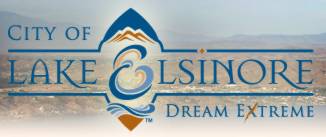 I don't know what's worse, frankly: the appalling conditions that Global Captive Breeders owner Mitch Behm allegedly kept his animals in, or their fate after the raid made by authorities and animal rights groups, ostensibly "for the animals' protection."
According to an article in today's Sacramento Bee, Behm surrendered all his animals to authorities, and 18,000 rodents and 600 reptiles were "euthanized" as the "most humane option."
Certainly many of the animals, especially the reptiles, could have been placed into the hands of the many rescue organizations geared specifically for treating and caring for surrendered, abandoned, neglected or confiscated reptiles across the U.S. This safety network has long been in place and has been supported by the community for over 20 years, and certainly dozens, if not hundreds, of the reptiles could have and should have been saved.
"A team of veterinarians, reptile specialists and animal cruelty experts determined that because of extreme neglect, cruelty and dangerously unhealthy conditions, euthanasia was the safest and most humane option."
While the article specifically states over 18,000 rodents and 600 reptiles were euthanized, it neglects to mention - how many were saved?
How many of those animals confiscated by authorities survived the raid and were placed into the rescue system?
How much time was actually spent, by experts, examining each of the 18,000+ animals to see which ones could be saved?
Did every single animal die?
Did every single animal have to die?
If someone knows the answers, please tell us.
These are questions we should all be asking. And we should be asking the City of Lake Elsinore. Because they killed those animals. 18,000 of them. Not Mitch Behm.
Lake Elsinore City Hall
130 South Main St.
Lake Elsinore, CA 92530
Phone: (951) 674-3124
Fax: (951) 674-2392
Email: cityhall@lake-elsinore.org
 Yet another kingsnake.com system has undergone an overhaul. This time, it's the reptile and amphibian events system that's had a winter makeover.
No longer just displayed as a long, linking list of events, reptile and amphibian event listings are now searchable by state and province, as well as zip and postal code. A new detailed listing section includes a phone number, the street address of the event, and a map link to help herpers find their way to the event venue.
Further upgrades to the reptile and amphibian events system in 2013 will allow event promoters to manage and edit their listings, as well as add more information about their event. Event listings are still displayed in the old format as well, on the events page, in numerous tabbed locations throughout kingsnake.com, and in the news scroll in the header.
The events system is already chock full of 2013 reptile and amphibian expos and events, so click here and give it a try, and see when the next reptile show is coming near you!
If you have a reptile or amphibian event in 2013 and need to get the word out, listing it in kingsnake.com's event locator system is the best way to reach herpers across the globe. With a 15+ year history of reptile event listings, kingsnake.com is the first place most herpers go to find out where the shows are.
To find out more about how you can list your upcoming reptile and amphibian event, check out the events page at http://kingsnake.com/events.
Monday, December 17 2012
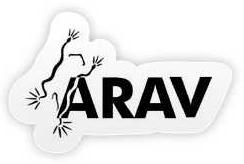 kingsnake.com and the Association of Reptilian and Amphibian Veterinarians (ARAV) are partnering to launch a reptile and amphibian veterinary locator service to help people locate local medical services and treatment for their cold-blooded pets.
The full system will be available in 2013, but the current beta version offers links and contact information on reptile and amphibian vets who are members of the ARAV in the United States and Canada. Under the new locator system, herp veterinarians may be located by state or province, or by zip or postal code. Plans for the final release include code that will allow anyone to add the reptile vet locator to their website or page.
"I am looking forward to this very sensible and powerful collaboration." said ARAV webmaster Dr. Katie Heinz-Taheny "The 'portable' search on your page looks good, and will reach an even greater number of herp owners."
The vet locator is one of the many projects in the works stemming from conversations at the September NRAAC Reptile Law Symposium and Workshop in Houston. More collaborative projects are expected to be announced in the coming year between many of the participating companies and organizations. Plans for the 2013 NRAAC conference at the National Zoo in Washington D.C. are scheduled to be announced later this week.
To try out the beta Reptile and Amphibian Vet Locator, visit http://kingsnake.com/vets.html. The full version will be released in January.
Thursday, December 13 2012
 Who doesn't like going to the zoo? For many, their first experience with reptiles and amphibians was at the zoo. I still remember when I was a kid visiting the Cincinnati and Indianapolis Zoos, where the giant tortoises were among my favorites. It left a lasting impression on me and growing up, I never turned down a trip to the zoo.
Now that I'm an adult, when I'm traveling I still like to try to visit the local zoo or aquarium. Over time, I've managed to visit dozens here in the States and in Europe. As an out of towner, however, I often find it difficult to find basic information on the zoo and its location, and without relying on a cab to get there. Sometimes I've found myself lost in a foreign city, wandering about in a rental car asking locals for directions.
kingsnake.com's newest feature, a zoo, aquarium, and wildlife park locator, should help resolve a lot of those issues. This new resource lists AZA-accredited facilities in the United States and Canada by state or province, as well as by zip and postal codes. The locator provides the street address, phone number, website link, and a map link for each facility, to help making your next trip to the zoo a better experience. Check out it out at http://kingsnake.com/zoos.html!
Tuesday, November 27 2012
 With the hearing on H. R. 511 and the release of a new report questioning the conclusions of the original USGS study this week, yesterday National Public Radio's (NPR) All Things Considered wrote about the issue and interviewed some of the players in the on-going saga of the Burmese python in South Florida.
NRAAC panelist Dr. Elliott Jacobson, National Geographic Society resident herpetologist Dr. Brady Barr, and Dr. Gordon Rodda, author of the original USGS study (now retired) all spoke to NPR. Although most of their statements did not appear to make the interview's final cut, those that did are very brief and very specific.
Jacobson says pythons have trouble eating and digesting food at temperatures below 60 degrees. "The bottom-line conclusion was the number of freezing days in the winter is going to limit the ability of this animal to spread beyond extreme South Florida," he says.
To read the article please check out NPR's website, or listen to the story and interviews here.
|



